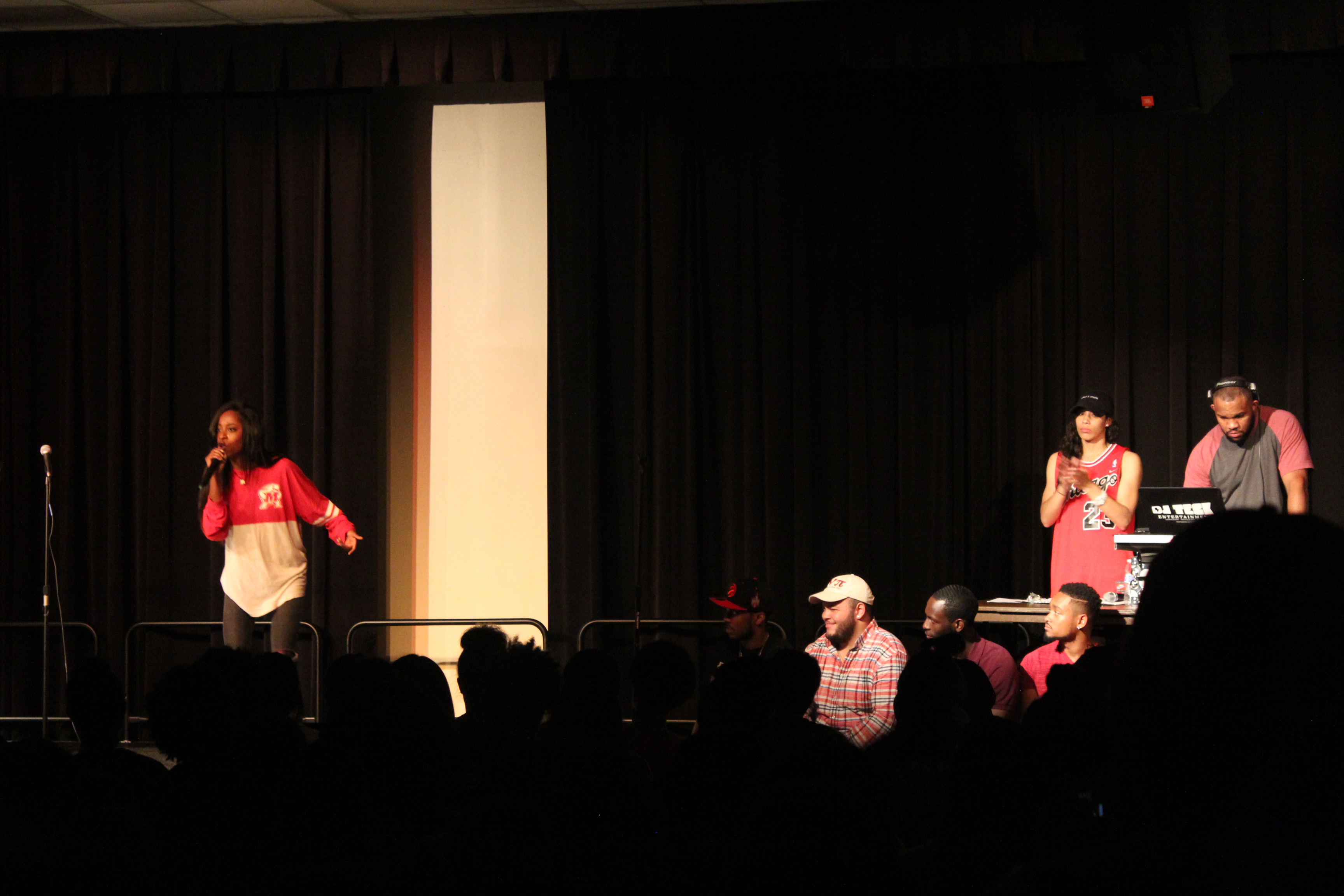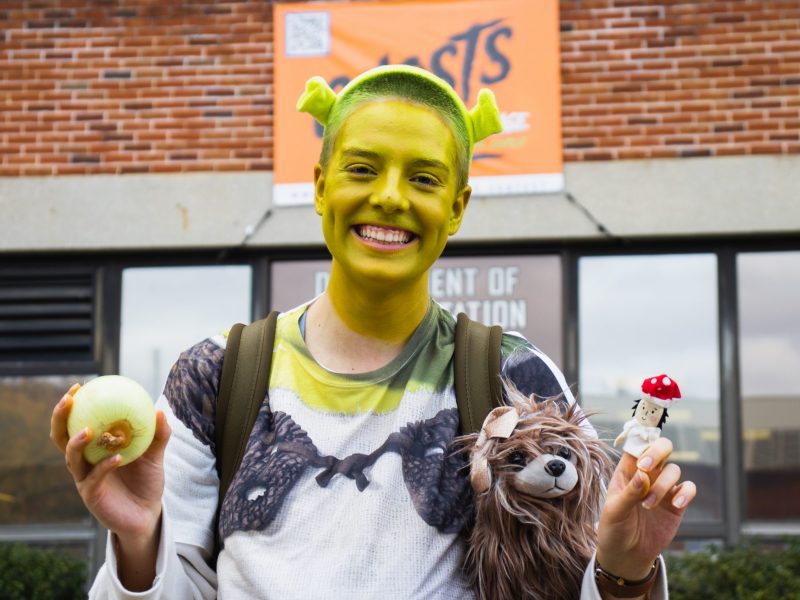When senior government and politics major Opeyemi Owoeye took the stage in the darkened multipurpose room of the Nyumburu Cultural Center for her last Juke Joint Thursday, the crowd already had high expectations.
“It’s a really tough crowd,” she said. “I always felt like the love that I got from the audience and from the students was worked for. I had to prove myself.”
The rapper, who goes by the name O-Slice, has been performing at Nyumburu’s monthly open mic event since her freshman year. In fact, it was this event that pushed her to get serious about music.
“People would see me here and then they would tell me to go to other schools and perform and the ball just got rolling with Juke Joint,” she said.
Those who filled the room and spilled out into the lobby during the final show of the year weren’t just passersby. Juke Joint celebrates the diverse community of people of color at the University of Maryland and gives them a space to come together.
“Juke Joint’s open mic format allows students and artists to introduce topics that are stimulating and diverse,” Nyumburu Assistant Director Anne Reese Carswell, who helped found Juke Joint 20 years ago, wrote in an email “The African American community is one of comradery [sic] facilitated through the tradition of oration and folklore.”
Performers sing, read poetry, rap, play an instrument or perform any talent they’d like to share. On Thursday, O-Slice said farewell with a compilation of verses she’s performed at Juke Joint since she first stepped on the stage four years ago.
“Feel like ‘A’ up in the alphabet, I’m always coming first,” she rapped, before dropping the follow-up that made the crowd go wild. “Only time my competition is, is if it’s in a hearse.”
Throughout the set, the crowd let O-Slice know what hit the best, cheering and clapping for her rapid-fire disses and clever, topical rhymes.
“These fireworks are amazing,” she quipped. “Don’t need Nicki and Mr. West to tell me that I’m blazing.”
But not every performance was so light-hearted. Religion was the focus of several poems and the university gospel choir’s performance juxtaposed with the debauchery of much of the rap music. Though Juke Joint functions an evening of escape and unity for the black community, darker themes of racial injustice, police brutality, sexism and the media often pervaded the room.
“The stage becomes a forum for dialogue driven by political rhetoric, social anxieties and artistic freedom,” Carswell said.
One performer asked the audience to repeat after him as he painted a picture for the audience of the world he hopes their children will one day enjoy.
“Let’s give them paradise,” he said. “They’re not going to be judged by their ethnicity, they’re not going to be judged by their sexuality, they’re not going to be judged by their religion.”
A few fists went up in the air, illuminated faintly by the yellow light pouring from the stage.
“I’m royalty if you know what I mean, Nigeria in my heart I bleed red white and green and I carry that with me in everything I do, even if I’m living in the red white blue,” O-Slice rapped during her senior year sample. “Especially as they’re beating all the black boys blue.”
Between acts, roll call kept everyone entertained as the hosts shouted out the different classes, then later moved to towns. Rap and club songs from the area played as each group had a chance to express themselves. Baltimore showed up in full force, dancing their way to recognition. The hosts also made room for the diversity in the room, allowing everyone to show their Caribbean, Nigerian, Ethiopian and American pride during the countries call.
Spontaneous cheering erupted into dance parties when the DJ spun crowd favorites. The bravest students made their way out of the seats and toward the front of the room, before the others streamed into the aisles to show their appreciation for the beat.
“To see that there’s a whole congregation of [people of color] celebrating pride is really cool,” freshman Yannick Alexis said. “It seems like a good open space where everyone can do their thing.”
The fire protection engineering major performed and experienced Juke Joint for the first time on Thursday.
“When I got here I was like ‘dang well this is where all the black people been on campus the whole time,'” he said.
It’s a fairly accurate observation. Besides a few white friends and an Asian or Hispanic performer, the Juke Joint crowd is homogenous.
“A lot of other demographics have places where they can feel free on campus and Nyumburu is our place,” O-Slice said.
She says Juke Joint is important to the black community because it’s a place to come together and relieve the stress of academics and college life. For this community, the music, laughs and dancing are an event worthy of a nicer outfit and two hours of the evening.
“When Nyumburu hosts an event everyone’s going to be there, everyone looks nice, everyone’s in a better mood,” O-Slice said. “It’s a place where we can congregate and have a great time.”



